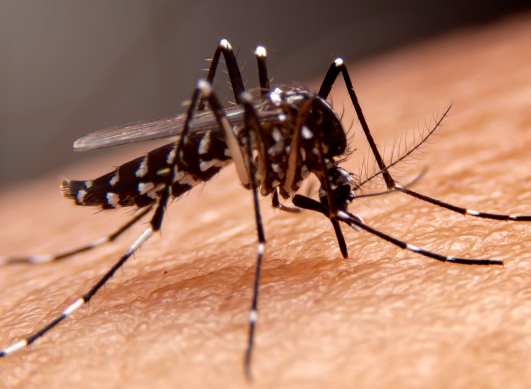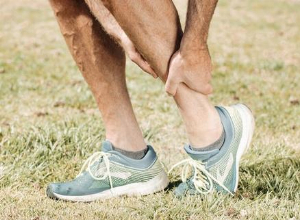Malaria: How stay protected while traveling and get treated in time?
Published 12 Jul 2024 • By Somya Pokharna
Malaria is a serious disease caused by parasites, primarily transmitted by the bite of infected mosquitoes. Whether one lives in or travels to malaria-prone areas, knowing about this disease is crucial for avoiding its potentially severe health complications like difficulties in breathing, brain damage, organ failure, and even death.
So, what is malaria caused by? What are its symptoms, and who is at risk? How is malaria diagnosed and treated, and what can one do to protect themselves from it?
Dive into this article to get all this essential information!

What is malaria? And, what causes it?
Malaria is an infectious disease caused by Plasmodium parasites. These parasites are transmitted to humans through the bites of infected female Anopheles mosquitoes through the saliva. Once inside the body, the parasites travel to the liver, where they mature and multiply. They then leave the liver and infect red blood cells, causing symptoms like fever, chills, and flu-like illness.
There are five types of Plasmodium parasites that cause malaria in humans, with Plasmodium falciparum being the deadliest. However, people can also get malaria through blood transfusions, organ transplants, or from a mother to her unborn child, but these cases are rare.
What are the risk factors for malaria?
Certain factors increase the risk of contracting malaria, such as:
- Living in or travelling to regions where malaria is common, particularly Sub-Saharan Africa, South Asia, and parts of South America.
- Immunocompromised individuals and those without prior exposure to malaria are more susceptible, such as travellers from non-endemic areas.
- Pregnant women are at higher risk of severe malaria, which can also affect the fetus.
- Infants and young children have weaker immune systems, making them more vulnerable to malaria.
What are the symptoms of malaria?
Malaria symptoms typically appear 10–15 days after the infected mosquito bite. They include:
- High fever
- Chills and shivering
- Sweats
- Headache
- Muscle and joint pain
- Fatigue
- Nausea and vomiting
- Anaemia
- Jaundice (yellowing of the skin and eyes)
If not treated promptly, malaria can lead to severe complications such as cerebral malaria (affecting the brain), severe anaemia, respiratory distress, organ failure, and death.
How is malaria diagnosed?
Early diagnosis of malaria is crucial for effective treatment and to prevent complications. It involves several methods:
- Microscopic examination: A blood smear is examined under a microscope to detect malaria parasites.
- Rapid diagnostic tests (RDTs): These tests detect specific antigens produced by malaria parasites.
- Polymerase chain reaction (PCR): This method detects the DNA of the malaria parasite and is highly sensitive.
How is malaria treated?
Malaria treatment depends on the type of parasite, severity of symptoms, and patient characteristics such as age and pregnancy status. Common treatments include:
- Antimalarial medications:
- Artemisinin-based combination therapies (ACTs): The first-line treatment for Plasmodium falciparum malaria.
- Chloroquine: Effective against Plasmodium vivax and Plasmodium ovale.
- Quinine: Used for severe malaria cases.
- Supportive care:
- Hydration: Maintaining fluid levels.
- Blood transfusions: For severe anaemia.
- Oxygen therapy: For respiratory distress.
Prompt and appropriate treatment is essential to reduce the risk of severe illness and death.
How can malaria be prevented?
Preventing malaria involves multiple strategies:
Avoiding mosquito bites
Mosquito bites can be prevented by staying indoors during peak mosquito activity times, usually late evening and night. Using insect repellents approved by the Environmental Protection Agency (EPA) that contain DEET, wearing protective clothing like long-sleeved shirts, long pants, and socks, and sleeping under insecticide-treated mosquito nets can significantly reduce the risk of mosquito bites.
Ensuring that living spaces are mosquito-free is also crucial. This can be done by using screens on windows and doors and repairing any broken screens to prevent mosquitoes from entering the house. Indoor residual spraying can kill mosquitoes, and eliminating standing water around your home can prevent mosquitoes from breeding, as they thrive in stagnant water.
Antimalarial prophylaxis and vaccinations
For those travelling to malaria-endemic areas, taking preventive medications such as atovaquone-proguanil, doxycycline, or mefloquine can be very effective in reducing the risk of contracting malaria. These medications should be started before travel, continued during the stay in the endemic area, and for a period after returning home, with the timing for starting and stopping these medications varying depending on the specific drug.
Recently, the RTS,S/AS01 vaccine has been approved for children in malaria-endemic areas, offering additional protection against the disease. It is a significant advancement in the fight against malaria and can be critical in reducing malaria incidence among the most vulnerable populations.
When to seek medical attention?
Seek medical attention if you experience symptoms of malaria, especially after visiting a malaria-prone area. Early treatment is key to preventing complications. Consult a healthcare provider if you plan to travel to regions where malaria is common to discuss preventive measures and medications. Stay informed, stay protected, and take action against malaria!
Did you find this article helpful?
Give it a "Like" and share your thoughts and questions with the community in the comments below!
Take care!
Sources:
Malaria — Centers for Disease Control and Prevention (CDC)
Malaria: Causes, Symptoms, and Treatment — Mayo Clinic
Malaria Facts — World Health Organization
Malaria: Overview and Prevention — National Health Service (NHS)
RTS,S/AS01 Malaria Vaccine Implementation Programme — World Health Organization

 Facebook
Facebook Twitter
Twitter




